The Deputy Minister for Trade, Agribusiness and Industry, Sampson Ahi, has reaffirmed government’s strong support for Ghana’s textile and garment sector, recognizing it as a key pillar for job creation and economic development.
This assurance came during a working visit on Thursday, June 19, 2025, to the Ajabeng textiles and garment enclave in Accra. The visit was aimed at gaining firsthand knowledge of the operations within the enclave and exploring strategic ways to help companies thrive, particularly under the government’s 24-hour economy initiative.
The tour began at Dignity DTRT Textile Company, where the Deputy Minister was received by Chief Executive Officer Wasantha Perera and Managing Director Salma Salifu.
The company, which employs over 6,000 workers and exports exclusively to international brands like Fruit of the Loom and Walmart, expressed enthusiasm for the 24-hour economy policy.

Management stated that Dignity DTRT already operates on a shift system in line with this model and is eager to expand if given access to nearby lands.
At Sleek Garment Export Ltd., owned by renowned entrepreneur Nora Bannerman, the team learned about the company’s achievements and challenges.
Known for its high-quality exports and support during the COVID-19 pandemic through the supply of PPEs, the company emphasized the need for space and modern cutting equipment to scale up production.
“If you make quality your hallmark, you can never go wrong,” Bannerman remarked, adding that the company also offers internship opportunities to train young professionals for the garment industry.
Sixteen/47, a company run by Nura Archer that manufactures uniforms for the Ghana Army and occasionally exports products, also hosted the Deputy Minister.

Management expressed concern about delays in cross-border trade, revealing that it can take up to seven weeks to transport goods to Nigeria by road due to bureaucratic bottlenecks.
They appealed for government intervention to ease regional trade restrictions and facilitate access to new markets.
The visit also included stops at Global Garments and Textiles Limited, Damaris Garments, and Nallem Clothing. These companies expressed appreciation for government engagement and pledged to increase employment and output if supported with the necessary resources, including land, machinery, and skilled labor.
At Bulluk Ghana Ltd., which specializes in traditional and specialized sewing, the Deputy Minister was impressed by the company’s internal technical team that ensures machines remain functional and production stays on track.
A common call across all companies visited was the need for increased government contracts, access to modern equipment, land for expansion, and support for worker training. Many also advocated for inclusive employment policies that cater to Persons with Disabilities (PWDs) as part of the broader 24-hour economy strategy.
In response, the Deputy Minister for Trade, Agribusiness and Industry, Sampson Ahi, assured stakeholders that government is considering ways to absorb the cost of training entry-level workers, particularly to reduce the burden on small and medium-sized factories.
“We recognize your role in job creation and national development, and we will work together to ensure a thriving local industry that benefits both businesses and citizens,” he stated.
The visit forms part of the government’s wider agenda to promote local industries, boost exports, and champion Made-in-Ghana products both domestically and abroad.










